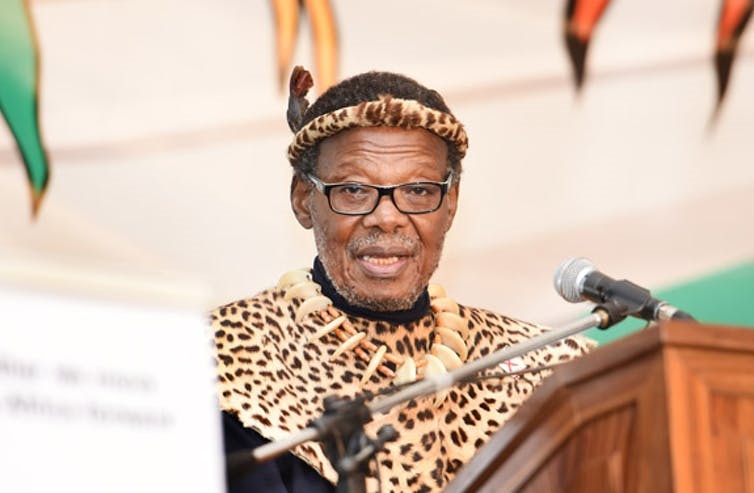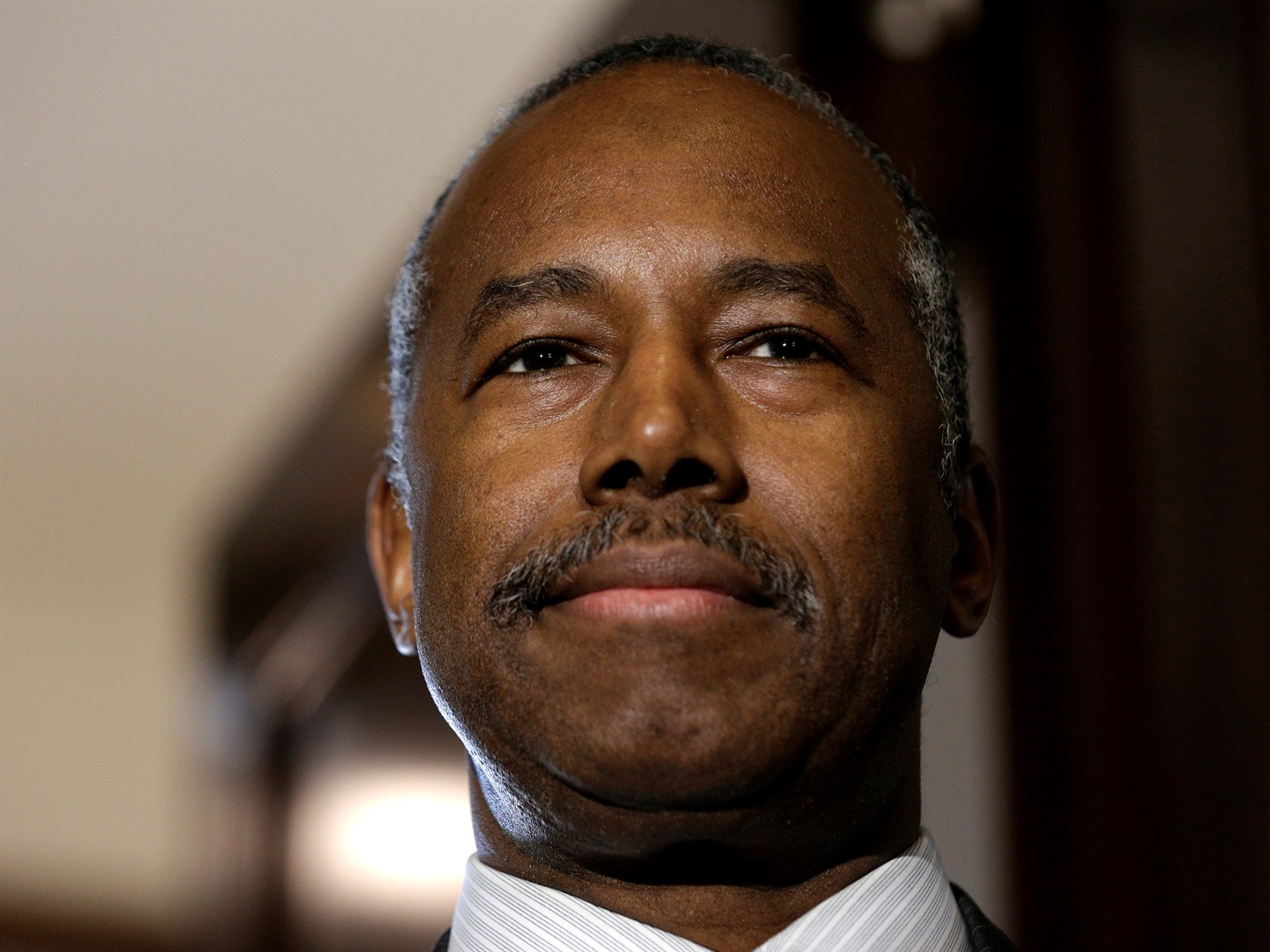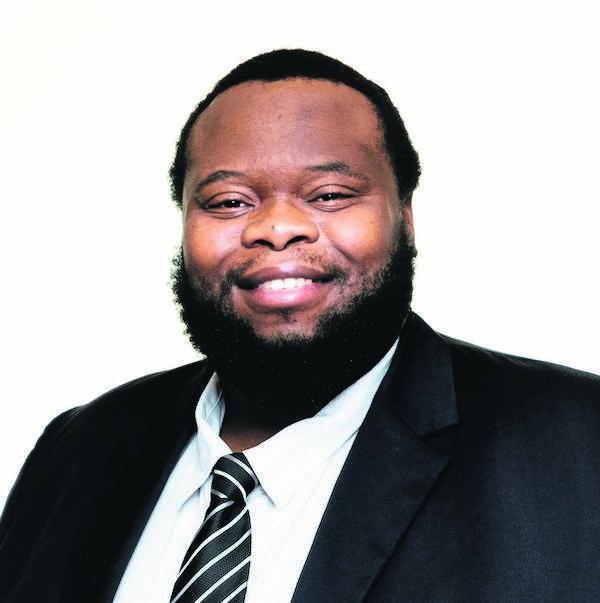Values held by traditionalists are becoming increasingly evident in the sociopolitical and economic aspirations of the black middle class, writes Siphiwe Dube
The last time South Africans had serious intellectual discussions about black conservatism was in the late 1980s.
Various academics and researchers concentrated specifically on the figure of Chief Gatsha Buthelezi and his Inkatha movement as emblematic of black conservatism in the country.
Those who identified Inkatha as a black conservative movement included historians Jabulani “Mzala” Nxumalo (1988), Gerhard Maré and Georgina Hamilton (1987), as well as political scientist Shireen Hassim (1988). Hassim specifically homed in on the gender implications of Buthelezi’s conservatism as a black politician.
Of particular relevance for exploring black conservatism now is an argument Hassim made in relation to Inkatha. She focused on its centralisation of an expressly patriarchal and hierarchical invocation of the traditionalist Zulu family, mobilised in defence of Inkatha’s anti-labour and anti-sanctions or divestment politics at the time.
Buthelezi’s sociopolitical conservatism stood in stark contrast to the politics of black liberation – which he claimed nonetheless. In fact, we take it for granted that, in the apartheid era, being a black politician and a public intellectual meant being situated somewhere on the left liberal spectrum.
However, Buthelezi put that assumption into question, along with a large number of black male intellectuals who were part of the apartheid government’s 1980s reforms that focused on creating a new black middle class with a stake in preserving, rather than overthrowing, this system.
Fast-forward to the post-apartheid period and 21st-century South Africa, and we can observe how the insights of the 1980s discussions are emerging in the greater push for expanding the middle class – especially the black middle class.
READ: Mondli Makhanya | Remembering IFP's hand in the Swanieville massacre
It should be acknowledged, however, that speaking of a “homogenous black middle class” in South Africa is problematic, especially given the lack of clarity as to how one measures middle class identity.
Sociologist Roger Southall writes: “While the black middle class may indeed play an important role in furthering democracy, its political orientations and behaviour cannot be assumed to be inherently progressive.”
In other words, as part of a global class that has been labelled as preoccupied with consumption and status, the black middle class’ significance in contemporary South Africa “revolves overwhelmingly around the extent and consequences of black upward social mobility”, notes Southall.
Consequently, the interests of this class will most likely align with conservative modes of self-preservation, rather than plebeian politics.
To this end, middle class buy-in to conservative right economic discourse does not need much defending – the issue of diversity of interests within this class notwithstanding.
READ: Kaunda will be missed for his clear mind and political fortitude
This means that, despite its rich history of left politics, South Africa is not shielded from the rise of the type of black conservatism ripping through the US, as well as the UK, Canada and parts of northern Europe.
In the US, the names of Condoleezza Rice, Clarence Thomas and Ben Carson are but a few of those associated with black conservatism.
Writing about Ngobese, for example, political scientist Christopher McMichael describes “a black online media personality who styles himself on black American political operatives like Candace Owens [identified with former president Donald Trump and the American far right] reinforcing white conservatives’ beliefs that structural racism does not exist because a black person says so and that they are under siege from creeping socialism”.
What Ngobese and, in particular, Mashaba represent (as the most vocal and public faces of rising black conservatism) is a view that is in line with traditional new right discourse, namely that “the decline of values such as patience, hard work, deferred gratification and self-reliance have resulted in the high crime rates, the increasing number of unwed mothers and the relatively uncompetitive academic performances of black youth”, as black American philosopher Cornel West described in 1986.
What this alignment means is that the black South African middle class’ attack on programmes aimed at redress, undertaken in pursuit of “middle class respectability based on merit, rather than politics”, could easily sideline the poor among them and further the Afrophobia against Africans from elsewhere on the continent.
Mashaba, for example, while he was the mayor of Johannesburg, promoted these ideas under the guise of protecting South Africa from so-called criminal elements.
What reflects as middle class pursuit in the post-apartheid context is more akin to conservative new right ideology (complete with its moral regeneration campaign) than it is to the liberal narrative of the pursuit of equality and freedom for all.
In the case of South Africa, it is arguable that the latest national election results in 2019 reflect a general trend towards such middle class economic conservatism.
READ: Mashaba calls for an inquiry into the coordinated acts of treason in Gauteng and KwaZulu-Natal
In fact, in the 2019 South African general elections, the Inkatha Freedom Party gained support nationally, including in the two major provinces of Gauteng and KwaZulu-Natal.
Furthermore, newly formed church-based party, the African Transformation Movement (ATM), with its “South Africans first” motto, managed to secure eighth position in the elections nationally in its first attempt.
The ATM claims to follow the philosophies of humanism and ubuntu, but a closer reading of its policies reveals that it believes in the return of capital punishment, building a “society founded on divine-based values”, promoting “moral regeneration” and reinvigorating the role of traditional leadership in governance.
As is clear from this list, the ATM espouses ideas commonly found in conservative and new right discourse, as imported from the US.
In fact, in expanding the reach of the ATM’s discourse beyond the black bloc, we can observe that it aligns very well with the DA’s conservative stances and policies on immigration, crime and rights of sexual minorities.
This points to a broader conservative alliance between the white right-centred bloc and the black middle class. Interestingly, the ATM’s economic principles are more in line with the EFF’s nationalisation of the economy, including the SA Reserve Bank. It remains to be seen how it balances this “socialist” economic outlook with its moral conservatism.
Another conservative Christian organisation also garnered enough votes for a sixth-place finish in the 2019 elections: the African Christian Democratic Party (ACDP), which was founded in 1993. While its electoral performance has basically remained flat, this party has nevertheless remained competitive in all elections since 1994, failing to acquire any national seats in only one election (1994). Its highly positive 2019 election performance indicates its continued relevance, especially in light of the argument of this piece regarding the rise of black conservatism.
In fact, the ACDP performed well in the three major provinces of Gauteng, KwaZulu-Natal and the Western Cape.
READ: Siya Khumalo | Church, could the ACDP be your biggest business risk?
Led by Reverend Kenneth Meshoe, the party promises a fresh start based on Christian and family values. In its own words: “The ACDP promotes, upholds and defends Christian family values.”
Moreover, it proclaims: “We adhere to a moral philosophy that is based on the word of God, and measure the interpretation of our policies against the prerequisites of biblical standards.”
More importantly, the ACDP’s economic policy foregrounds traditional right economic principles. It does so by advocating a commitment to “reducing government debt and spending; job creation and economic growth through an open-market policy, with as little government interference as possible; becoming competitive in the global economy and global markets; lowering inflation; state enterprises operating in open competition with private providers; and doing away with complicated tax forms, laws and expensive monitoring”.
In other words, there is much conservatism to be found in the specifically evangelical Christian orientation of this organisation, including the fact of its black constituency.
Although the focus here is only on a few organisations, the point is to illustrate the very eclectic nature of what constitutes black conservatism in present-day South Africa.
This eclecticism indicates that there seem to be two distinct conservative currents at work – one that is more traditional and the other that is a more populist-styled current.
The first current, embodied by Mashaba and Ngobese, embraces free-market economics and self-improvement ethics.
The second current is embodied by parties or movements like the ATM, which does embrace some outwardly left-wing policies, such as nationalisation.
This raises questions of viability and appeal. One, which of these strains of black conservatism is most viable in the current political context? Two, can the strains be further demarcated in terms of the urban black middle class versus the working class?
In fact, explaining why the 2019 elections mattered in a way that highlights the key aspect of black conservatism, we see that the rise of that aspect is tied to a number of challenges usually associated with conservative backlash.
Both conservative strains address aspects of the challenges related to the economy, education, morality, national identity and sexuality.
This raises the question of how our democracy will respond to those challenges – and the possibility that South African politics remains fertile ground for new orientations, albeit mainly conservatively black, in my estimation.
To which “Eish!” is not a sufficient response from the left.
Dube is a senior lecturer and former head of political studies at Wits University. This article was first published on the forum Africa is a Country.
| Delivering thenews you need
|





 Publications
Publications
 Partners
Partners












